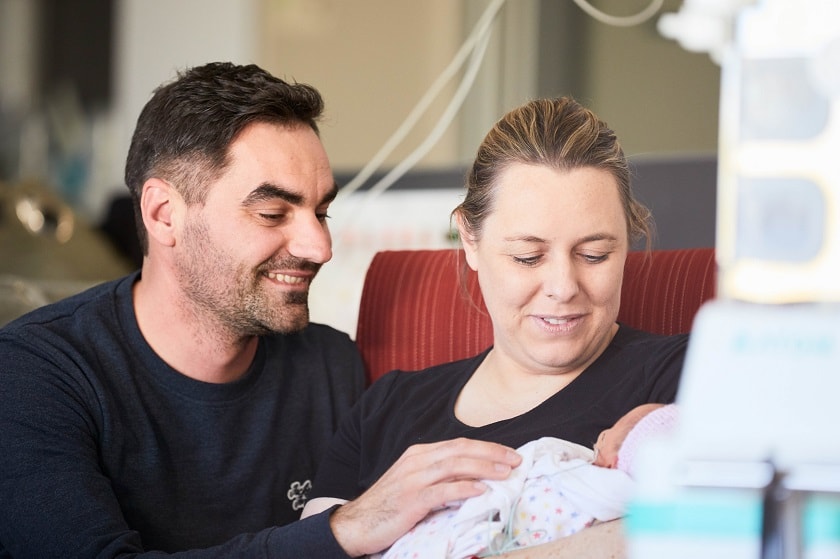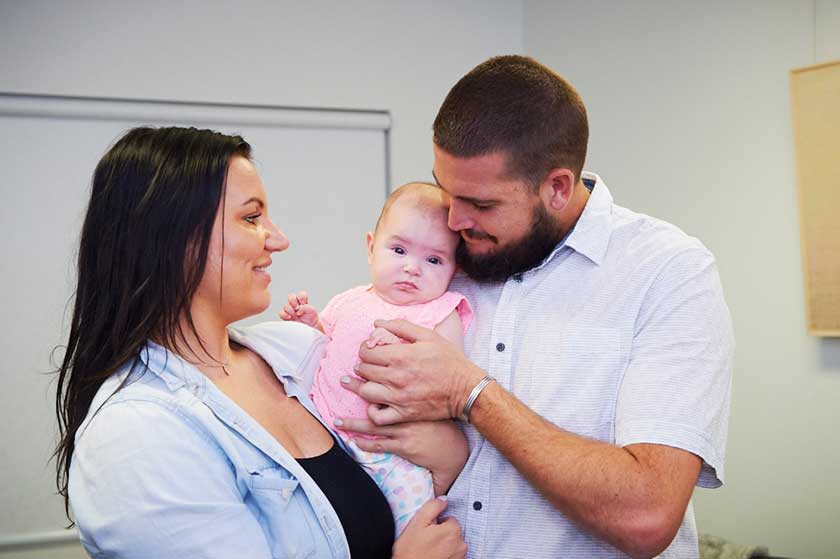The first few months, or even years, of having a new baby can be challenging for both parents. While the pressures of a new addition to the family can cause stress all round, dads are often reluctant to seek help and hide how they are truly feeling.
In Australia, as many as one in 10 expecting or new dads will experience anxiety or depression during pregnancy and/or during the perinatal period.
If you are noticing changes in your partner’s behaviour or notice that he is struggling with daily activities, here are some ways to get a better sense of how he is feeling.
Make time
Choose a moment that allows both of you to take the time you need to discuss the topic properly and in a safe environment.
Tell him what you’ve noticed about his mood or emotions, and listen to your partner without judgement, asking what support he needs. Just starting a conversation will let your partner know that he’s not alone and show genuine interest in how he is feeling.
Join him in something he loves
If your husband struggles to open up about his feelings, try taking part in a particular activity or hobby he enjoys – this may be a sport, going for a walk, or have a break from the children by organising a meal out or a weekend away together.
Although you may not enjoy the same hobbies as your husband, taking part in something he loves will make him feel appreciated and, in turn, may allow him to open up about his feelings.
Reasons for change
If your husband does not want to talk or does not recognise that he needs support, it may be useful to talk with him about how his emotions or issues are affecting the family, and to list the reasons why addressing them would help your family thrive.
He may not be aware that his changes in behaviour, such as withdrawal or extreme worry, are being noticed by the children and putting a strain on the family dynamics.
This may be a way to encourage him to open up and connect with the support he needs.
Seeking professional help
Don’t be afraid to suggest to your husband to get professional help to manage his emotional wellbeing as a new parent, and offer to do this together.
St John of God Raphael Services specialises in supporting the emotional needs of new parents and is available to dads, mums and families for no cost with a GP referral.
The most important thing is for parents to be open about how they feel and support each other’s needs. With the right support, parents will be able to thrive as individuals, create a strong family unit and be the best parents they can be.







